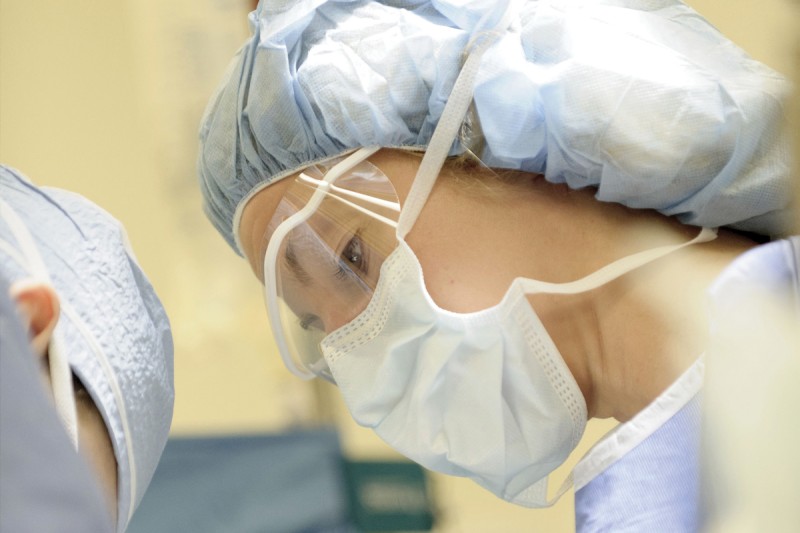
Vivian E. Strong, MD, FACS
Our recent research confirms that total gastrectomy should be considered for all patients with the CDH1 gene mutation that carries a high risk for developing hereditary diffuse gastric cancer.
In our study, published in the Annals of Surgery in December 2017, none of the 41 patients who received prophylactic gastrectomy developed gastric cancer recurrence at a median follow up of 16 months post-surgery and a vast majority, 85 percent of patients surveyed, rated their outcomes as being as good as or better than they expected. (1)
Hereditary Diffuse Gastric Cancer
Gastric cancer is the third leading cause of cancer deaths globally. (2)In 2017 there were an estimated 28,000 new cases and 10,960 deaths in the United States. (3) Most gastric cancers, about 90 percent of cases, are sporadic. Of the remaining about 10 percent that are familial in origin, 1 to 3 percent arise from germline mutations. Hereditary diffuse gastric cancer is caused by a germline mutation in the CDH1 gene responsible for encoding E-cadherin, a glycoprotein that plays an essential role in epithelial differentiation. Abnormal production of E-cadherin prevents it from acting as a tumor suppressor, contributing to uncontrolled cell growth and division. (4)
For CDH1 mutation carriers, the risk of developing diffuse gastric cancer by the age of 80 is 70 percent for men and 56 percent for women. Women also carry an additional 42 percent risk of developing lobular breast cancer by the age of 80. (1), (4) Genetic testing for the CDH1 mutation is essential for family members with a first or second degree relative with a history of diffuse gastric cancer.
Hereditary diffuse gastric cancer is highly penetrant and aggressive, but current endoscopic screening and biopsy techniques are unable to adequately identify the disease early. Ongoing surveillance with annual endoscopies and multiple random biopsies starting when patients are in their 20s or at an age 5 to 10 years younger than the earliest age of diagnosis within a blood relative are not reliable methods for screening. A review of other studies reporting on more than a dozen series of endoscopy results found that 90 percent of patients who had total gastrectomy had a normal preoperative upper endoscopy and yet final pathology found occult gastric cancer. (1)
Prophylactic Gastrectomy
Following genetic counseling with our Clinical Genetics Service, patients with the CDH1 mutation consulted with a surgeon, gastroenterologist, nutritionist, and psychologist as required. They were fully informed about the lifetime risk of gastric cancer and other cancers, the option of total gastrectomy, the subsequent expected changes in lifestyle, and the potential of finding no evidence of cancer on final pathology. The procedure was discouraged for patients under the age of 21 or without adequate social supports, and for those with significant comorbidities such as receiving active treatment for metastatic lobular breast cancer.
Forty-one patients, including 14 males and 27 females with a known CDH1 mutation elected to have a total gastrectomy. For each patient, one of our four experienced gastric surgeons carefully removed the stomach, joined the esophagus to the small intestine, and performed a D1 or D2 lymphadenectomy as required. Twenty-five patients had open procedures and 16 received minimally-invasive surgeries — half by laparoscopy (5) and the other half by robotic surgery. Complete gastrectomy was confirmed by analyzing the proximal and distal margins of frozen specimens. Our dedicated gastrointestinal pathologist performed a detailed analysis of specimens to identify the presence of occult foci intramucosal diffuse cancer. (1)
Study Results: A Decade of Experience
In our study conducted from 2005 to 2015, we evaluated postoperative surgical and patient-reported outcomes. The median operative time was 199 minutes (225 for laparoscopy and 220 minutes for robotic surgery) and the median number of lymph nodes retrieved was 18. Cancer was found in the specimens of a large majority of patients, 85 percent, and in all 35 of those patients, histology confirmed diffuse-type signet ring cancer. (1)
Overall, the median length of hospital stay was seven days. Patients lost 4.7 kg or 15 percent of body weight on average, as measured at the 16-month follow-up, and weight loss patterns stabilized around 6 to 12 months. In a post-operative survey among 20 patients, 45 percent reported that their outcomes were better than expected and 40 percent said that their outcomes were as anticipated. These results suggest that patients received adequate counselling in advance about lifestyle changes they could expect post-surgery. (1)
At Memorial Sloan Kettering Cancer Center, we treat rare and common cancers with multidisciplinary collaboration and advanced expertise. We develop customized treatment plans to inform the best diagnostic, treatment and post-treatment approaches for each patient. As the highest-volume gastric referral center for gastric cancer in the United States caring for over 200 patients annually, we are committed to helping our patients achieve the best possible outcomes.